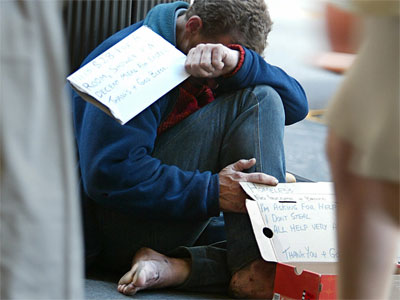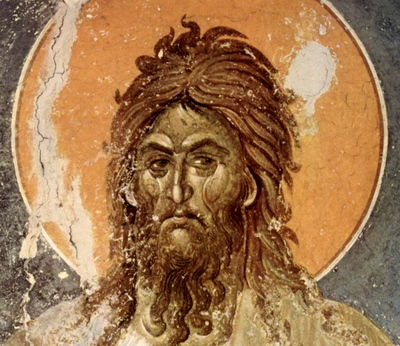
From Salon comes this wrenching story of a young woman struggling to save her brother from his own madness:
Like any New Yorker, I was no stranger to homeless people. I passed by them on my way to the shiny glass tower where I worked for a glossy women’s magazine: the older lady perched atop a milk crate in the subway station, the man curled up in a dirty sleeping bag and clutching a stuffed animal. They were unfortunate ornaments of the city, unlucky in ways I never really considered.
Until one hot summer day in 2009 when my little brother Jay left his key on the coffee table and walked out of his house in West Texas to live on the streets instead. In the days that followed I spent hours on the phone with detectives, social workers and even the FBI, frantically trying to track him down. A friend designed a “Missing” poster using the most recent picture I had of him wearing a hoodie and a Modest Mouse T-shirt, a can of beer in his hand and a deer-in-headlights expression on his face. I created a Facebook group and contacted old acquaintances still living in our hometown of Lubbock, begging everyone I even remotely knew to help me find him. No luck. If it had been me, a pretty young white woman, chances are my face would have been all over the news — but the sudden disappearance of a 20-year-old guy with paranoid schizophrenia didn’t exactly warrant an Amber Alert.
In the year and a half that mental illness had ravaged my brother’s mind, I’d learned to lower my expectations of what his life would be like. The smart kid who followed politics in elementary school probably wouldn’t become a lawyer after all. Instead of going to college after high school, Jay became obsessed with 9/11 conspiracy theories. What began as merely eccentric curdled into something manic and disturbing: He believed the planners of 9/11 were a group of people called “The Cahoots” who had created a 24-hour television network to monitor his actions and control his thoughts — a bizarre delusion that appeared seemingly out of nowhere. Eventually, his story expanded until “The Cahoots” became one branch of the New World Order, a government whose purpose was to overturn Christianity, and he had been appointed by God to stop it.
This made it hard for him to act normal, even in public. He’d lost his job busing tables after yelling, “Stop the filming and hand over the tapes” to everyone dining in the restaurant. Having friends or even a coherent conversation wouldn’t be possible unless he took the anti-psychotic medication he’d been prescribed while he was in the mental hospital. A legal adult, he was allowed to refuse treatment, and he did. Otherwise “The Cahoots” would win.
I counted each day he’d been missing until they became weeks, until the number was so high I wondered if he was even still alive. That number was about the only thing I continued to keep track of. Dirty clothes and dishes piled up at home, deadlines were missed at work, and I only got out of bed if it was absolutely necessary. I cried often, but especially during thunderstorms, a reminder that wherever my brother was, he was unprotected.
And then whisper a prayer for all the lost souls of this world, and all the families who love them. (Might I suggest a prayer to St. Dymphna?)

